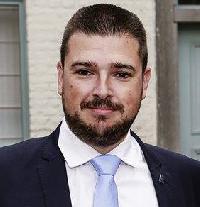| 话题中的页数: [1 2] > |
Poll: Have you been asked to adapt a translation to include gender-neutral people? 论题张贴者: ProZ.com Staff
|
|---|
This forum topic is for the discussion of the poll question "Have you been asked to adapt a translation to include gender-neutral people?".
This poll was originally submitted by Iulia P.. View the poll results »
| | | |
neilmac
西班牙
Local time: 11:52
Spanish西班牙语译成English英语
+ ...
Not directly from clients per se, but I have noticed that some of the journals to which the articles I revise (proofing/post editing) are being submitted for publication are becoming more picky on this issue.
I must confess I find it a bit of a pain (to put it mildly) and rather absurd to conflate biological sex and 'self identification' with linguistic gender, but as the saying goes, "the customer is always right"… even when they may not be.
| | | |
| Yes, and I accepted | Mar 1, 2023 |
But I can imagine that there are languages in which it isn't possible to express gender-neutrality.
| | | |
| Other (please share) | Mar 1, 2023 |
My target language, Swahili, is gender neutral so such a localization is not applicable
| | |
|
|
|
So far, I haven’t been asked specifically, but that’s something I’m attentive to.
| | | |
| Not yet, but in Polish it would not be a massive challenge | Mar 1, 2023 |
So far I've only been asked to make sure all masculine names of professions have their feminine equivalents (not always a given in Polish). That was for an educational project promoting involvement of schoolgirls in traditionally 'non-girly' subjects. I enjoyed it!
| | | |
| Never been asked | Mar 1, 2023 |
I've never been asked to do it for Russian. Even if I would, I would have politely rejected such an offer - for ethical reasons.
Because as a professional, I must protect my potential clients from... say, losses.
| | | |
| Never been asked | Mar 1, 2023 |
I have never been asked before, but I can see it happening sooner or later given the fact that I translate subtitles and the audiovisual field is introducing non binary characters in movies and tv shows.
Italian doesn't have a neutral gender, but inclusive language can still be done adopting circumlocution.
It's indeed not immediate because we're used to be very direct in speech but I'm sure it would be a stimulating task.
| | |
|
|
|
Enrico Zoffoli 
意大利
Local time: 11:52
正式会员 (自2013)
German德语译成Italian意大利语
+ ...
More than yes: They didn't ask, they demanded.
| | | |
Matthieu Ledoré
法国
Local time: 11:52
正式会员 (自2022)
English英语译成French法语
+ ...
| Asked to? No, but... | Mar 1, 2023 |
I try to use inclusive words, which can be challenging in French, a gendered language.
The software Antidote is quite useful in that respect.
This being said, human proofreading is the most important part of the translation flow.
| | | |
... and I will ALWAYS accept it. Inclusion is not optional.
| | | |
and the first time I went along. It was an extensive project with seminars about inclusion for coworkers etc.
But the second project (for the same agency) I politely declined, although they assured me I had done such a good job.
Personally, I just got tired of that circus. I am too old to worry about political correctness. As far as I am concerned there will always be just he or she.
| | |
|
|
|
Bruna Mattos
巴西
Local time: 07:52
English英语译成Portuguese葡萄牙语
+ ...
Sometimes the client demands it. But I only use this language when I am explicitly demanded to do so.
[Edited at 2023-03-01 13:31 GMT]
| | | |
I’m shocked that 20% of people here would refuse to do this.
| | | |
My one-word answer to the poll question is “No” (I’ve never been asked to adapt a translation to include gender-neutral people).
That said, being transgender (and certainly not ‘gender-neutral’) myself, I have a keen personal interest in the motivation behind the imposition of ‘inclusive language’ in different contexts – and especially in formal settings (in public administration and in legislation, for example) where imposed ‘inclusive language’ can very easily ... See more My one-word answer to the poll question is “No” (I’ve never been asked to adapt a translation to include gender-neutral people).
That said, being transgender (and certainly not ‘gender-neutral’) myself, I have a keen personal interest in the motivation behind the imposition of ‘inclusive language’ in different contexts – and especially in formal settings (in public administration and in legislation, for example) where imposed ‘inclusive language’ can very easily be counter-productive with regard to the mental, social and spiritual well-being of the very same people the ‘PC’ folk claim to support.
Before replying yes or no to any such request I’d want the potential client to answer some questions from me.
For starters:
- What does the expression ‘gender-neutral people’ mean to you?
- What do you mean by ‘include’, in relation to gender-neutral people?
- Why do you think this specific translation should be adapted to ‘include gender-neutral people’?
- Have you considered how gender-neutral people might react when they discover they have been ‘included’ as members of a specific sub-set of the general population?
- Why do you suppose the author of the source text didn’t use inclusive language (which would have made your request for adaptation of the translation unnecessary)?
Only in the (very unlikely) event that, after sharing our views on those matters, the potential client and I found ourselves in agreement that it would be appropriate to adapt the translation in a manner that is inclusive of gender-neutral people, might I be inclined to say ‘yes’.
And then would we need to thrash out an agreement on how to be ‘inclusive’, while at the same time respecting the established principles of translation theory and practice, but that's a whole new can o' worms!
JL ▲ Collapse
| | | |
| 话题中的页数: [1 2] > |





















































